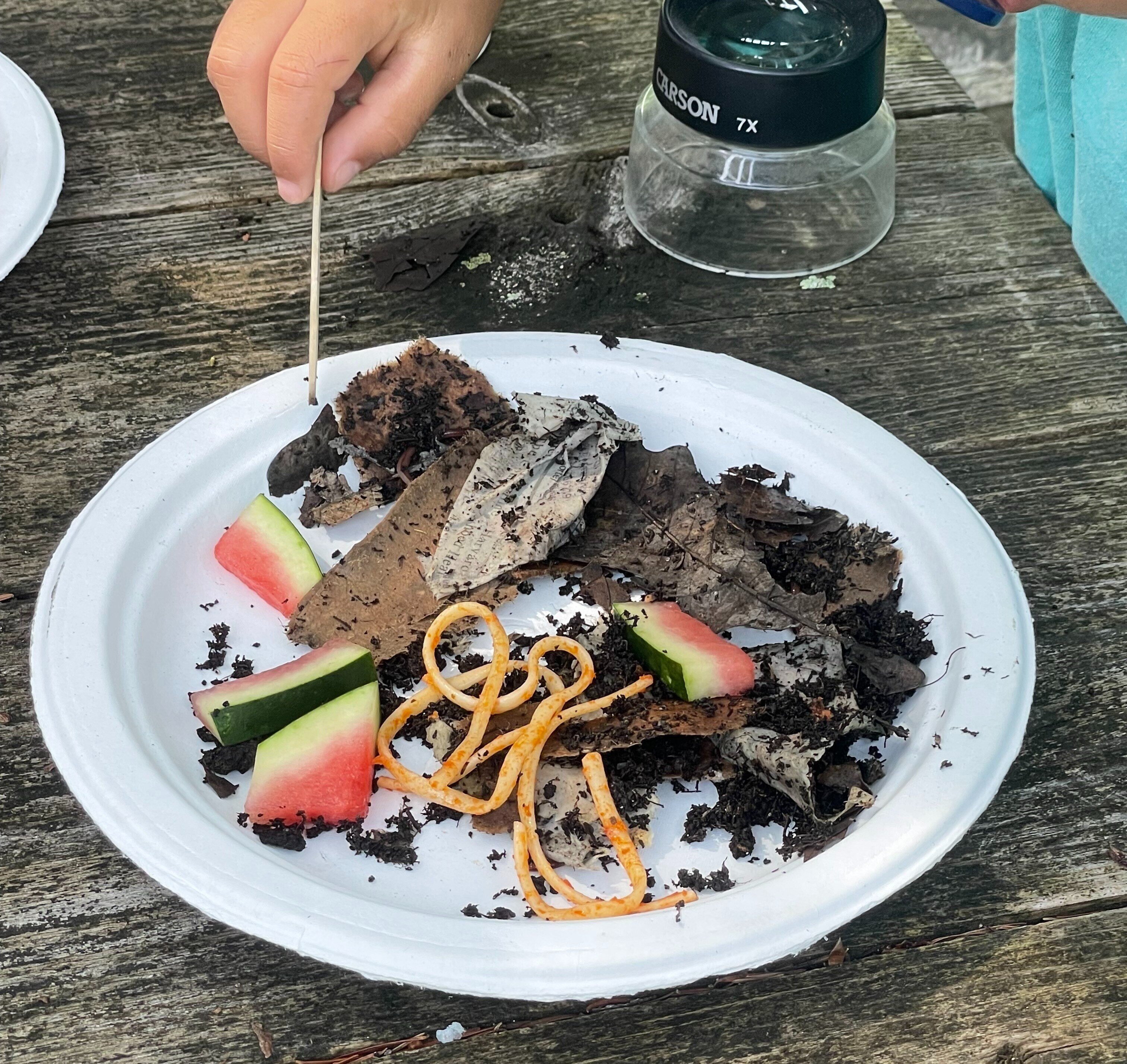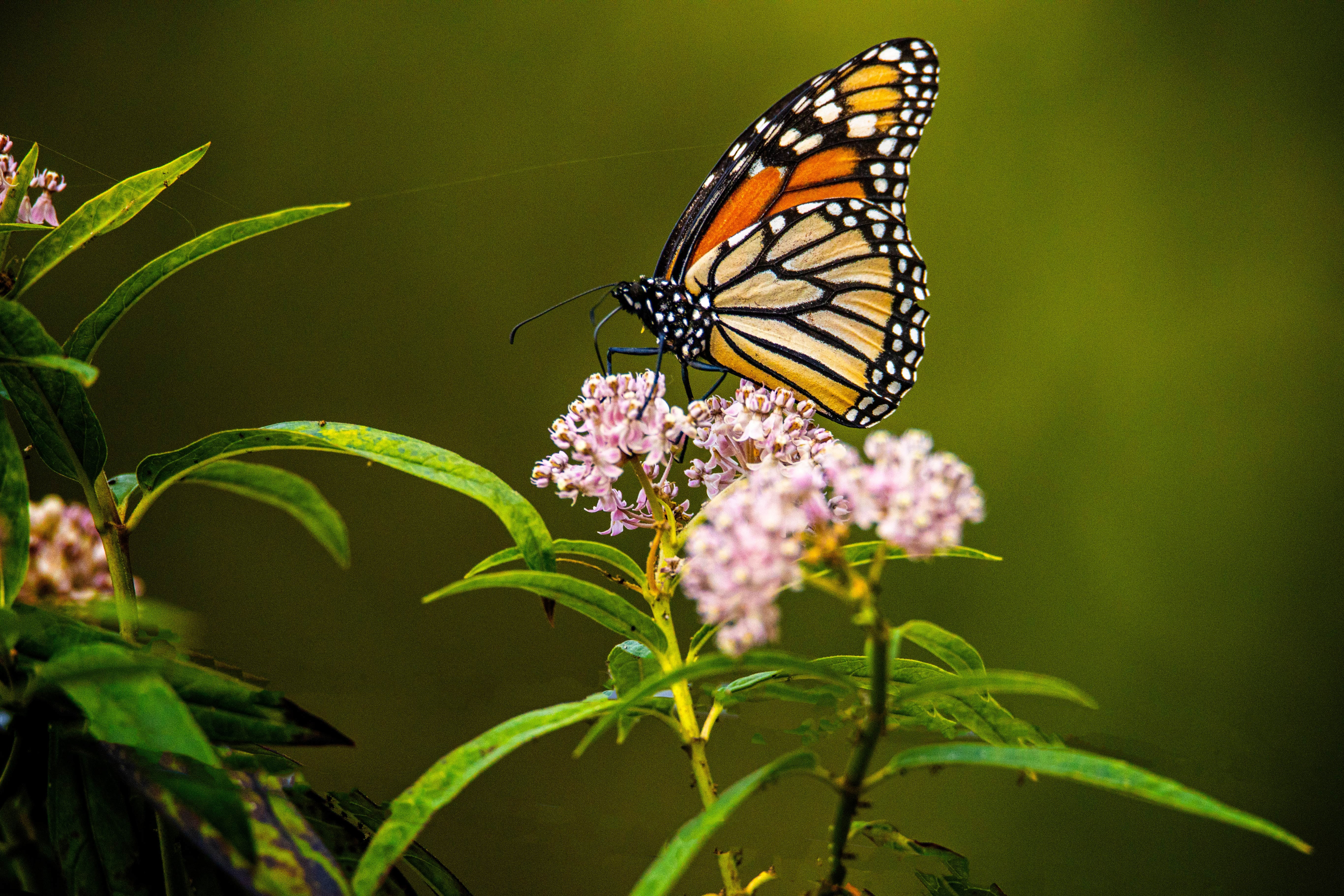Just 10 minutes in nature could change your life. Maybe not immediately. It might be 10 minutes every day, or even 1 hour a week. It could be a 10-minute pause, alone, experiencing your surroundings. Maybe it’s a couple of hours of guided breathing and sensing. A life-changing experience need not be an epiphany. Oftentimes, small changes to the way we exist with our environment can lead to an improvement in the way we approach relationships, tasks, and challenges.

Courtesy of Nadine Mazzola.
Physically, spending time outdoors can improve your health, an idea supported by both historical and modern research. Across dozens of studies, exposure to greenspace is associated with positive health outcomes, including lower blood pressure, cortisol and heart rate; improved lung and cardiovascular health; and overall higher self-reported health. It can regulate your nervous system, help you sleep better, and even improve your connection with your surroundings, pets, and loved ones.
 The practice of being outside can come in many forms: walking through a park, sitting in your own backyard, exploring a botanical garden. It can be as informal or formal as it needs to be. Take shinrin-yoku, the Japanese practice of forest bathing, for example. Forest bathing is a meditative practice of “taking in, in all of one’s senses, the forest atmosphere,” according to the Global Wellness Institute. You could be walking or sitting, but it’s more importantly about the conscious effort of taking in what you hear, see, smell, and feel.
The practice of being outside can come in many forms: walking through a park, sitting in your own backyard, exploring a botanical garden. It can be as informal or formal as it needs to be. Take shinrin-yoku, the Japanese practice of forest bathing, for example. Forest bathing is a meditative practice of “taking in, in all of one’s senses, the forest atmosphere,” according to the Global Wellness Institute. You could be walking or sitting, but it’s more importantly about the conscious effort of taking in what you hear, see, smell, and feel.
Courtesy of Nadine Mazzola.
Think of a moment when you walk through the gates of a garden. You’re not sure what you’re going to see, but the moment you see it, you’re truly just experiencing it, taking it all in. That instance between initial noticing and resulting thinking. Your mind hasn’t yet wandered into thinking about capturing it, sharing it, analyzing it. It’s still experiencing what exactly is around you. According to Nadine Mazzola, forest bathing is like a more extended time of that exact moment.

Nadine forest bathing. Courtesy of Nadine Mazzola.
Restrictions or commands should not be placed on this experience, guides Nadine, a trainer and certified guide of forest bathing and director of New England Nature and Forest Therapy Consulting. Forest bathing practices can be simple invitations to slow down and relax for just a couple of hours and about giving yourself permission to enjoy what’s right in front of you. At its core, forest bathing is about “going just a bit slower than we usually go, says Nadine, and “switching from our thinking, learning, beautiful minds to being in our five senses.” When we do that, we are instantly immersed in the experience of wherever we are.
A practice like this can take some getting used to.

A forest bathing class in progress. Courtesy of Nadine Mazzola.
Having a more structured experience can support those who might be new to mindful practices in nature. Nadine encourages interested practitioners to find what’s helpful for them and test some different formats out. Guided experiences, like Nadine’s Forest Bathing and Nature Immersion with Watercolors, are hosted in partnership with outdoor spaces like the Garden at Elm Bank (Wellesley, MA), Assabet River National Wildlife Refuge (Sudbury, MA) and, aptly, the land of Thoreau (Concord, MA). These organized times and places can also provide the defined space to say “we’re here for the next hour and this is what we’re doing,” according to Nadine.
Nadine encourages people to find what’s helpful for them, whether it’s taking a walk in a new green space, spending some time experiencing their own garden in a new way, or signing up for a class. It can be as simple as finding where your growth zone is—that space that’s slightly out of your comfort zone, but not too far that it’s inhibiting or frightening. Places like botanical gardens and parks can strike that balance between the familiar and the unknown. Where one can find both community and solitude. In these spaces, opportunities exist to experience beauty, awe and wonder; get lost in scent, sounds, and sights; and connect to yourself, your community, and your environment.
Some spaces were created with the express purpose of providing opportunities for thoughtful meandering and sensory contemplation. For centuries, labyrinths, which comprise a continuous, meandering path, have been created and used as “tools for personal, psychological, and spiritual transformation,” according to The Labyrinth Society. Traced back to 3,000 and 4,000 years ago across Europe and Asia, labyrinths have long been a way for societies to practice slowness, find peace, and connect with their environment and community.

Labyrinth at the Garden at Elm Bank
The Labyrinth Society promotes global labyrinth tourism through its Labyrinth Locator, which features over 6,600 labyrinths across 90 countries. Massachusetts is home to 120 registered labyrinths, including one launched in 2023 at the Garden at Elm Bank. Featured here is over 2,000 feet of walking paths bordered by Purple Sensation Allium (Allium ‘Purple Sensation’) flowers in the spring and Purple Tears Switchgrass (Panicum virgatum ‘Purple Tears’) in the summer and fall. An adaptation of the 8-ring Chartres, it is adapted to enable immediate exit from the center, whereas many labyrinths require retracing the labyrinth path to exit. Guests are invited to join generations who have appreciated these designs by taking approximately 12-15 minutes to follow the path to its center.
Whether walking a labyrinth or taking a guided forest bathing course, these experiences may only last a matter of minutes or hours. While they can open your mind to a continual, growing practice or even occasional reminders, even these short, defined moments of time can be life-changing. A participant of Nadine’s 2-hour forest bathing class shared that the class transformed her life. What started as a relief from daily routines and stresses then trickled into a dinnertime conversation with her family. This single session became a tool for her whole family to approach mental health challenges together.

Nadine guiding a forest bathing session. Courtesy of Nadine Mazzola.
Other participants simply share that after some time of taking the course, they’ll never walk the same way again. It’s changed their relationship with being in nature. From always walking and thinking quickly to noticing so much more, they end up realizing how much a part of everything they are. “What’s most incredible about the progression of this practice,” Nadine reflects, “is that often people will experience the direct benefits associated with intentional time in nature, such as a relaxing moment and even lower heart rates, to over time gaining a sense of belonging.”
Even for a longtime practitioner and experienced facilitator like Nadine, new experiences and realizations are an inevitable outcome. In her own backyard, she sat and watched her surrounding progress from early evening into twilight, which reminded her to create more moments to witness those daily shifts from dawn to day, afternoon to sunset.
Creating these opportunities in nature may not come naturally and may not always seem possible. But they remain steadfastly important. Whether you seek calmness or community, health or belonging—or some of all these—the answer may very well be in your neighborhood or your own backyard. Perhaps a forest bathing course is the right fit for you or to make more time to visit your local gardens and green
calmness or community, health or belonging—or some of all these—the answer may very well be in your neighborhood or your own backyard. Perhaps a forest bathing course is the right fit for you or to make more time to visit your local gardens and green spaces. If you have a dog, your daily walks are a perfect time to incorporate mindful moments, which you can read more about in Nadine’s award-winning book called Forest Bathing with Your Dog. For Mental Health Awareness month and every month, find a way to bring sensory outdoor experiences into your life. The risks are few and the benefits are plentiful.
spaces. If you have a dog, your daily walks are a perfect time to incorporate mindful moments, which you can read more about in Nadine’s award-winning book called Forest Bathing with Your Dog. For Mental Health Awareness month and every month, find a way to bring sensory outdoor experiences into your life. The risks are few and the benefits are plentiful.
Top: Nadine forest bathing.
Bottom: Forest Bathing with Your Dog by Nadine Mazzola.
Courtesy of Nadine Mazzola.
Massachusetts Horticultural Society invites members and professionals of the mental health community to reach out with opportunities to create enriching experiences and stories about the healing power of gardens and gardening. Please contact marketing@masshort.org to share your experiences and ideas to partner for future classes. To view our upcoming classes and workshops, visit our website.





